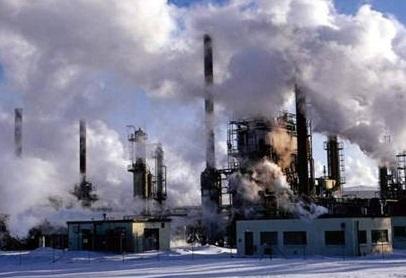In today's industrial world, safety is of prime importance. One of the most critical safety concerns in various industries is gas detection. The use of an industrial gas leak detector can help prevent disasters, protect lives, and maintain the efficiency of industrial operations. This article explores the practical significance of industrial gas detection and discusses the hazards of industrial gases and the importance of industrial gas monitoring.
Industrial gases are gaseous materials that are used in a wide range of industrial applications. These gases are often stored under high pressure and can be hazardous if not managed properly. Some of the common industrial gases include nitrogen, oxygen, carbon dioxide, argon, helium, and hydrogen. These gases are used in various industries like petrochemicals, pharmaceuticals, power generation, food processing, and many more.
Industrial gases, while essential to many processes, pose significant risks. The hazards of these gases range from flammability, explosiveness, asphyxiation to toxicity. For instance, gases like hydrogen, methane, and propane are highly flammable and can lead to explosive situations if leaked.
Others like carbon dioxide and nitrogen are asphyxiants that can displace oxygen in the air, leading to suffocation in enclosed spaces. Toxic gases like ammonia, chlorine, and hydrogen sulfide can cause severe health effects even at low concentrations.
The hazards posed by the industrial gases highlight the importance of effective gas detection. Gas detection is not only about compliance with safety regulations but also about ensuring a safe working environment. Here's why gas detection is so important:
1. Prevention of Disasters: Gases like methane, hydrogen, and propane are highly explosive. A small leak can lead to a massive explosion if it reaches a source of ignition. An industrial gas leak detector can help identify such leaks early, preventing potential disasters.
2. Saving Lives: Many industrial gases are hazardous to human health. Early detection of these gases can alert workers, allowing them to evacuate the area, thereby saving lives.
3. Ensuring Operational Efficiency: Gas leaks can affect the efficiency of industrial operations. By detecting leaks early, companies can prevent loss of valuable resources and maintain operational efficiency.
Given the potential hazards of industrial gases, continuous industrial gas monitoring is crucial. It involves the use of sensors and detectors to monitor the presence of gases in the workplace environment. It is an integral part of safety management in industries that use or produce gases.
Monitoring systems can provide real-time information about gas levels, helping to detect leaks early. They can also alert personnel to evacuate areas where hazardous gas levels are detected.
Industrial Gas Leak Detector: The Frontline Defense
An industrial gas leak detector is an essential tool in industrial gas monitoring. These detectors use various sensing technologies to detect the presence of gases. Some of the common types of gas detectors include electrochemical sensors for detecting toxic gases, infrared sensors for combustible gases, and semiconductor sensors for a wide range of gases.
The significance of industrial gas detection cannot be overstated. It is a critical aspect of safety management in industries dealing with hazardous gases. An effective industrial gas leak detector and a comprehensive monitoring system are vital to detect gas leaks early, prevent disasters, and ensure the safety of workers. It's not just about regulatory compliance, but about creating a safe and secure working environment.
Given the potential hazards of industrial gases, no industry can afford to ignore the importance of gas detection. As technology advances, we can expect more sophisticated and reliable gas detection systems that will further enhance safety and efficiency in the industrial sector.
The Practical Significance of Industrial Gas Detection
